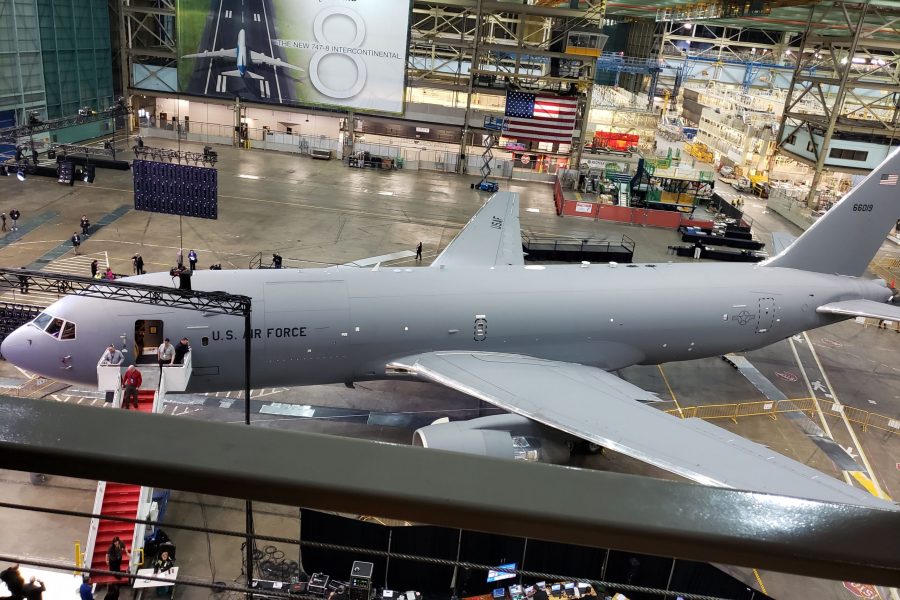Boeing has extended the suspension of operations at its Washington state production facilities, a move that could have long-term implications for the KC-46 program.
The company announced April 5 it will extend the closure, citing “continuing focus on the health and safety of its employees, current assessment of the spread of COVID-19 in Washington state, the reliability of the supply chain, and additional recommendations from government health authorities.” This includes the company’s Everett production plant that assembles the KC-46, and Boeing Field in Seattle, from which many of the tankers have left for Air Force bases.
The suspension was first announced March 25, and tentatively scheduled for two weeks. Since then, Boeing has also announced voluntary buyouts for its approximately 150,000 employees.
So far, Boeing has delivered 33 KC-46s to the Air Force. Service acquisition boss Will Roper said March 27 that at the time there was not much concern for further delays, but if the stand-down extends to over a month, “it will affect all deliveries.”
While the production line remains suspended, the company is working with the Air Force on fixes to the troubled Remote Vision System. The Air Force and Boeing reached an agreement last week that includes an overhaul of the cameras and display system in the aircraft.
The company said it will listen to government directions and follow the spread of the virus to “ensure we are ready for a safe, responsible, and orderly return to operations,” with no date range provided. Employees who can work from home will continue to do so, and volunteers “supporting essential work” will continue to report to work.
Other company facilities have also suspended work. On April 2, Boeing announced the temporary suspension of operations at its Ridley Township, Pa., facility, where the V-22 Osprey and MH-139 Grey Wolf are produced.
